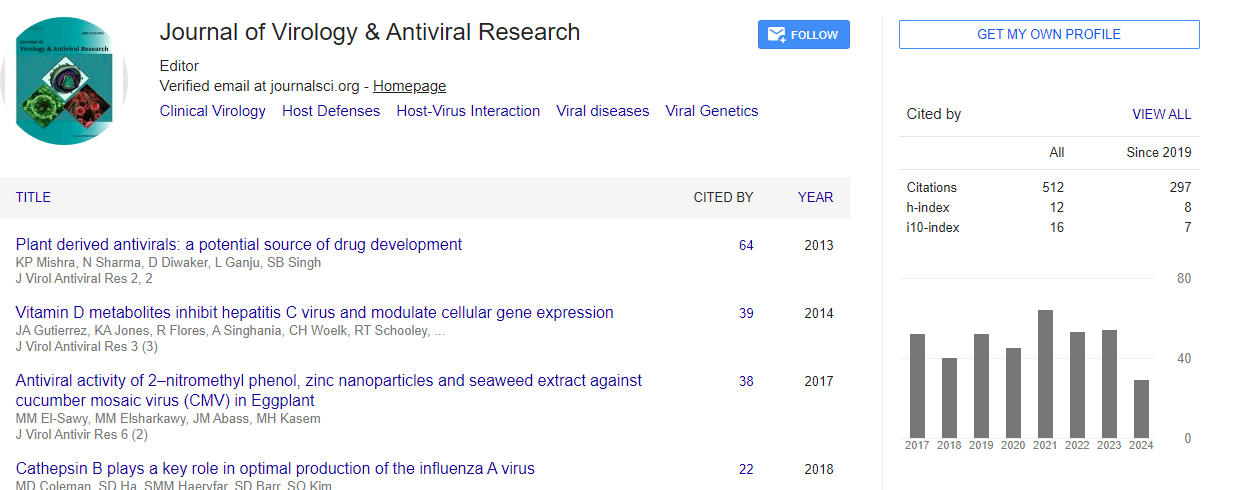Received social support among the people living with HIV in Armenia
Tatevik Balayan
National Center for Disease Control and Prevention, Armenia
: J Virol Antivir Res
Abstract
Background: Received social support has been associated with reduced rates of depression among the people living with HIV (PLHIV). Several studies show the positive association between the received social support and the adherence to antiretroviral treatment (ART). To our knowledge, this was the first study exploring social support and adherence to ART in PLHIV in Armenia Methods: We recruited 180 participants using quantitative cross-sectional survey design with convenience-sampling approach. The sample size was calculated using the formula for two equal groups to detect the difference between two proportions. The interviews were conducted in the main office of “PPAN” NGO in Yerevan city during February- May 2017. We used MOS RAND questionnaire to assess social support. Descriptive statistics and simple logistic regressions were run using SPSS. Results: The mean score of received social support was 69.4 (ranging from 0 to 100, SD 26.1). The mean score of received instrumental social support (based on the first 4 questions) was 71.1 (SD 30.2). The mean score of reporting having someone to help them if they were confined to bed was 68.9 (SD 33.9), to take them to the doctor if they needed was 68.6 (SD 34.0), to prepare meals if they were unable to do it themselves was 73.6 (SD 32.0), and to help with daily chores if they were sick was 73.8 (SD 31.2). The mean score of received emotional social support (based on the last 4 questions) was 67.7 (SD 31.2). The mean score of reporting having someone to have a good time with, if they needed was 67.5 (SD 32.6), having someone who turned to for suggestions about how to deal with a personal problem was 65.8 (SD 32.9), who understands their problems was 67.2 (SD 33.2), and who loved and made them feel wanted was 70.3 (SD 33.7). In unadjusted analysis received social support was not significantly associated with adherence to ART (p-value 0.05). Conclusion: The results of the study show that the mean score of received social support was 69.4 out of 100 maximum. No significant associations were found between the level of received social support and the adherence to ART. However, we highlight the importance of treating PLHIV not only by providing antiretroviral drugs but also by providing social support. Support groups for PLHIV need to be integrated into HIV care and treatment programs to increase patients’ literacy and to address the patients’ psychosocial needs.
 Spanish
Spanish  Chinese
Chinese  Russian
Russian  German
German  French
French  Japanese
Japanese  Portuguese
Portuguese  Hindi
Hindi 

